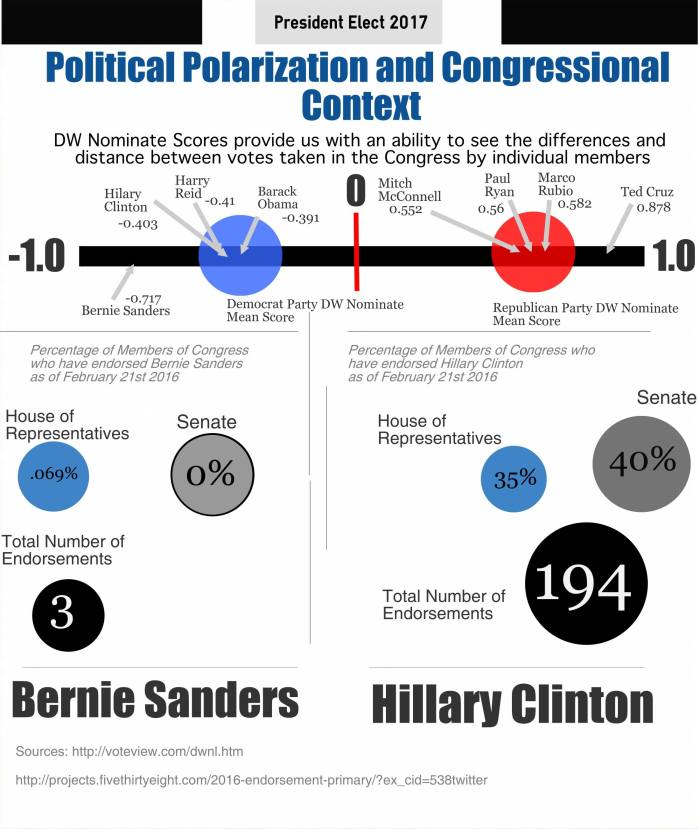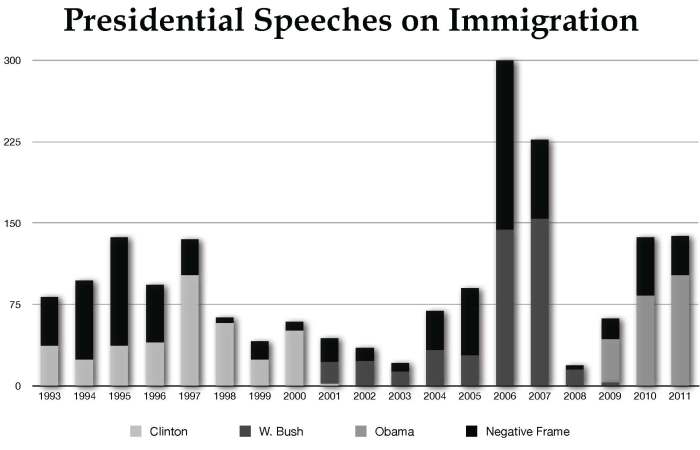
Senator Sanders has been a consistent and powerful voice in American politics. He has forcefully fought for those who are often unable to fight for themselves. He has often given a strong voice to those without one. His willingness and ability to fight for such critical policy issues that are not popular with the establishment and status quo party elites, ideas that others are willing to compromise on rather than expand, is noteworthy. I truly believe that he has been the change in the world that he wants to see. He is man of conviction and principle, unwilling to seek his own assent at the expense of those less fortunate. I hope and pray that he never, under any circumstance, ever stops speaking truth to power. He is the patron saint of the poor and downtrodden. May God grant him many years. He is my ideal presidential candidate. I #FeeltheBern, quite strongly. Yet, unfortunately, I still cannot vote for him. I know too much about our current system. Please do not misunderstand me. I am not worried about whether or not Bernie can win a general election. There is a mathematical path, although increasingly improbable, to the nomination and general election victory. However, my trepidations are strictly focused upon the notion that he could and would win; a President-Elect Sanders gives me serious cause for concern, particularly as it pertains to the progressive cause and continuing the work that President Obama has advocated.
Even a cursory look at history, political science, or even math tells us a profound, undeniable truth about what politics will look like beginning in January 2017. The unproductivity and polarization within the 114th Congress has been intense and will continue into the 115th Congress. There is some evidence it will get slightly better, but it will not be enough to support a Bernie Sanders Administration. Do you remember the “Hope” and “Change” that the new President Barack Obama would bring in 2008 and during his presidency? There were a little over 500 promises to be exact. According to PolitiFact’s assessment, he broke his promises 22% of the time and compromised on 25% of his promises. Obama was able to deliver on only 45% of those promises. Obama was a liberal’s liberal in the Senate, slightly left of the party median. Most importantly, what he promised is significantly different politically from what Senator Sanders is currently promising. Do we think that that a President Sanders could do better on broken and compromised promises? Given the nature and political make-up of the incoming Congress, it is highly improbable.
Remember, because this is the most important aspect of the Presidency when it comes to domestic policy, Obama had a filibuster proof majority in the Senate and 255 Democrats in the House of Representatives when he took office. He helped to usher in some of the most consequential reforms and legislation in decades: the American Recovery and Reinvestment Act, the Patient Protection and Affordable Care Act, and the Dodd-Frank Wall Street Reform and Consumer Protection Act as well as the Don’t Ask, Don’t Tell Repeal Act. These pieces of legislation, and others, were lauded by the Democrat Party as the new era of liberalism, an incremental addition to the New Deal and the Great Society. And, yet, upon further inspection of these ‘liberal’ polices, we find that they are, in fact, watered down versions of progressivism, a slightly left of center neo-liberal justification of the realities of the private/public partnerships that Senator Sanders is fighting against. Even more importantly, however, is the fact that as a Senator, Barack Obama was able to compromise and work with other Senators to produce legislation. As President, the Congress (mostly the Democratic members) was willing to work with him. History, and political science research, reveals some inkling that this would happen as he was running for office. He won 100s of endorsements from those in Congress. In fact, one of the Senate’s most historical and influential members, Robert C. Byrd endorsed Obama for President, saying he was a “shining young statesman.” The impetus for his endorsement came from their similar policy positions regarding the War in Iraq, Byrd said. This is a far better mechanism of determining how effective presidents will be, as it pertains to policy and legislative accomplishment.
Currently, Bernie Sanders has 3 endorsements from the House of Representatives, wherein he served for 16 years, and 0 endorsements from the Senate, where he has spent the last 8 years. To put it in perspective, Hillary Clinton has 140 total endorsements. At this time, 40% of the Senate and 35% of the House of Representatives have endorsed her for President.
Senator Sanders is 0.326 points from where President Obama was while in the Senate, which is nearly twice as ‘liberal’ as the current president, wherein the Republican Party controls the current Senate. Importantly, the projections that the Senate and the House will remain in Republican control are noteworthy. The path to a Democratically controlled Congress is narrow; a filibuster proof one is nearly improbable. Just as concerning, there are data-backed assessments that Senator Sanders will continue to not produce the same enthusiastic turnout among African-Americans or Hispanic voters that Senator Obama did in 2008, which reinforces the notion that Bernie would not have the same political capital in Congress that Obama had in 2009. The results in the recent South Carolina Primary is nearly an irreversible application of Neosporin for those who #FeelTheBern.
Moreover, Senator Sanders cannot point to a single piece of legislation or major negotiated deal brokered by him during his time in the Senate. The one deal on veteran’s benefits he did make, which had bipartisan support, fell through because it ended up being too good of a bill with too many benefits. We have no indications that he would be able to compromise or work within the congressional context inherited in 2017. For instance, some of the policies he is proposing now consist of:
- Free Public College Tuition
- By the end of his 1st term in Office, not have the most prisoners in the world
- Single Payer Healthcare System
- A 3.5% Unemployment Rate
- Paid Leave
- More than Double the National Minimum Wage
- A $1 Trillion Carbon Tax that redistributes the wealth back to the poor
- A $1 Trillion Infrastructure Spending Bill
These policies, many of with which I wholeheartedly agree, are so far beyond the median voter’s preferences and what is politically feasible the current political system cannot take them seriously. This is to say nothing of the math errors that boasted the economic growth they would engender. Historical assessments, mathematical projections, and political science research shows us that despite how much we may want a revolution like Bernie advocates, unless the revolution extends to the far reaching political offices such as local prosecutors, state legislators, governors, and the U.S. Congress, electing Bernie Sanders to the Presidency will not and cannot produce a domestic policy change of the aforementioned magnitude, wherein the political structure of government is fundamentally altered. The math just does not support such a notion.
Senator Sanders seems to think that he can treat the Presidency as tantamount to a Green Lantern comic book hero figure, wherein he can will his way to policy change if he just tries hard enough. This is such a ludicrous supposition. Presidents do not always get policy results. Sometimes they are incredibly ineffective. They can, however, sometimes change the discussion of the policy agenda, but this is not always the case, according to the research. Presidents do, however, always attempt to set the agenda, as difficult as it is. Their success depends upon any number of factors. Senator Sanders could be effective in this measure of the Presidency, but it is not guaranteed. One thing we know, for absolute certainty, according the research, is that presidents cannot ‘will’ their way to anything with strength, sheer force, or the exertion by which they try. They need Congress, the public, and the media as well as context, business interests, and special interests to be successful in domestic policy.
Unfortunately, this is the nature of the system. I do not like it anymore than you do. There is a context in which each political actor must function. There are entrepreneurs that can sometimes change the system and broaden the context the policy discussion. It is this reality for which we should thank Bernie Sanders. His presence in the primary against Hillary Clinton has masterfully challenged the establishment. The debates, the primaries, and the caucuses have pulled Hillary further to the left of each policy position, sharpened her debate skills, and forced her to think about her candidacy as something other than a guaranteed win. All of which will serve her well in the necessity of keeping Trump, a bloviating ignoramus, from obtaining institutional power.
Yet, the system still seems broken for those below a certain income bracket. Our voices in the policy discussion are nearly silenced. Of course we are frustrated. Of course we want change. We see the process taking forever. We see the status quo remaining stronger than ever. We can clearly see our ideal candidate, historically on the fringes of politics, challenging the establishment within the party. Briefly, we let our hope and hearts get the better of us, we think we should throw our support behind him because his voice and arguments matter. We think he can change the entire system. I implore you to slow down, take a deep breath, and acknowledge that Senator Sanders cannot fix the problem on his own; he needs all of the actors in the system to change as well. Before you say you must vote your conscious, think about the fact that by doing so, you could be contributing to the dismantling of the progress made thus far.
Unless there is a massive movement that will completely alter the entire structure of our government in this one election, which is so unlikely, your conscious, moral vote is immoral. Arguably, one could make the assertion that the reason so many state legislatures and policies reflect the conservative, regressive, backward approach to life that some 18th Century agrarian philosophers had, is the very fact that Barack Obama was elected and ushered in healthcare reform. He was perceived as too progressive, looked too different from the ‘norm’. His policy proposals and accomplishments, whether true or not, were perceived as too far from the median. Republicans used these perceptions to mobilize voters, even though voter turn out was at its lowest, to make it harder for minorities to vote, to roll back much of the progress on a women’s right to choose, and to economically bankrupt public education. I would challenge you to ask yourself where were you in 2010 or 2014.
Now, imagine Senator Sanders, a Democratic Socialist, getting elected. What do you think the response will be when he proposes free college or a single payer health system or paid leave for poor, working minorities? If you really want to help the progressive movement, if you want policies that reflect your liberal ideology, choose the candidate that will incrementally get those policies for your children and their children. It is too late for us.
The real revolution is built upon compromise. Compromise is progressivism. Real policy change will only occur incrementally, over time. As adults we must compromise. Hillary Clinton is our compromise. Hillary Clinton is our most effective option. Let us all vote with our reason, logic, and minds, not our hearts, passions, and ideals. Idealism is for babies. Always getting what you want is for toddlers. Compromise is adulthood. So, for those of us that #FeeltheBern, I have to say, “Grow up”. Vote for the Establishment. Vote for Compromise. Vote for Hillary Clinton.
I’m with Her!




